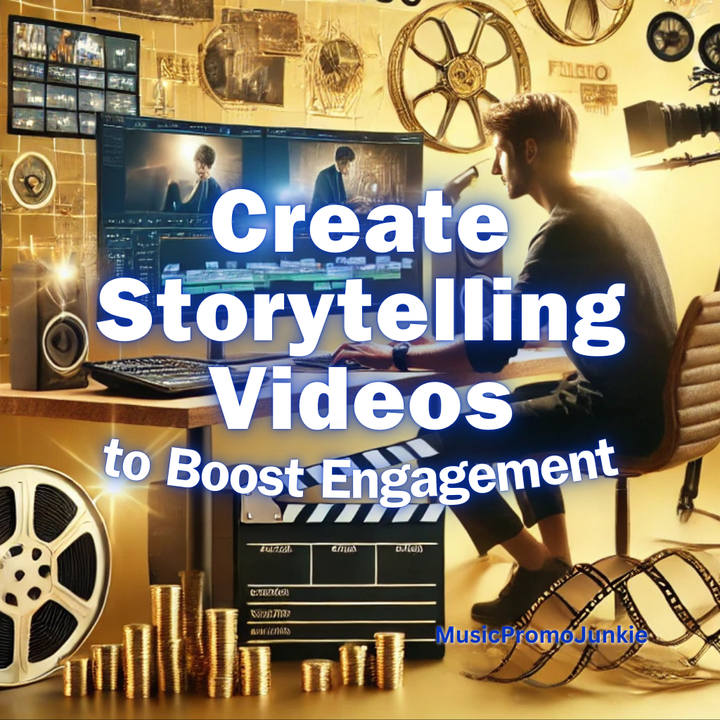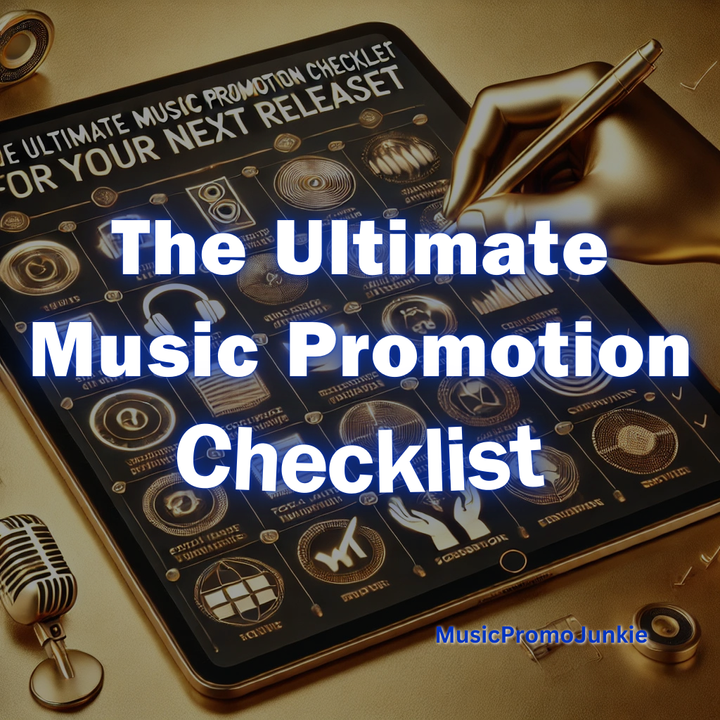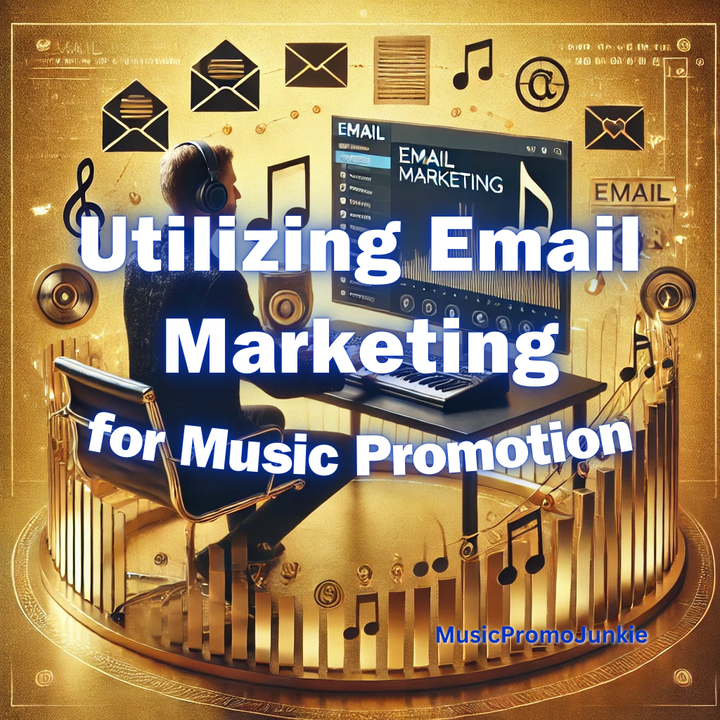Hashtags & Tags: Every Musician Needs to Know #️⃣
Discover effective hashtag strategies for music promotion. Learn how micro-genre and niche hashtags boost your visibility and engage the right audience.

In the ever-evolving landscape of music promotion, standing out as a musician can be challenging.
With countless artists vying for attention, leveraging the power of hashtags and tags has become essential.
Hashtags, especially those that pinpoint your micro-genre and niche, play a crucial role in helping you reach the right audience.
The real point of a hashtag is to teach the algorithms which audience to serve your music to.
When you post your content on social platforms, it is initially shown to a small sample size audience.
If your post engagement is high, the algorithms will continue to share your post with an even larger audience.
This is why it is important to use micro-genre and niche hashtags to help ensure that your test audience is the right fit.
This article will delve into the importance of hashtags and tags, focusing on micro-genre and niche hashtags, and provide actionable strategies for effective music promotion.
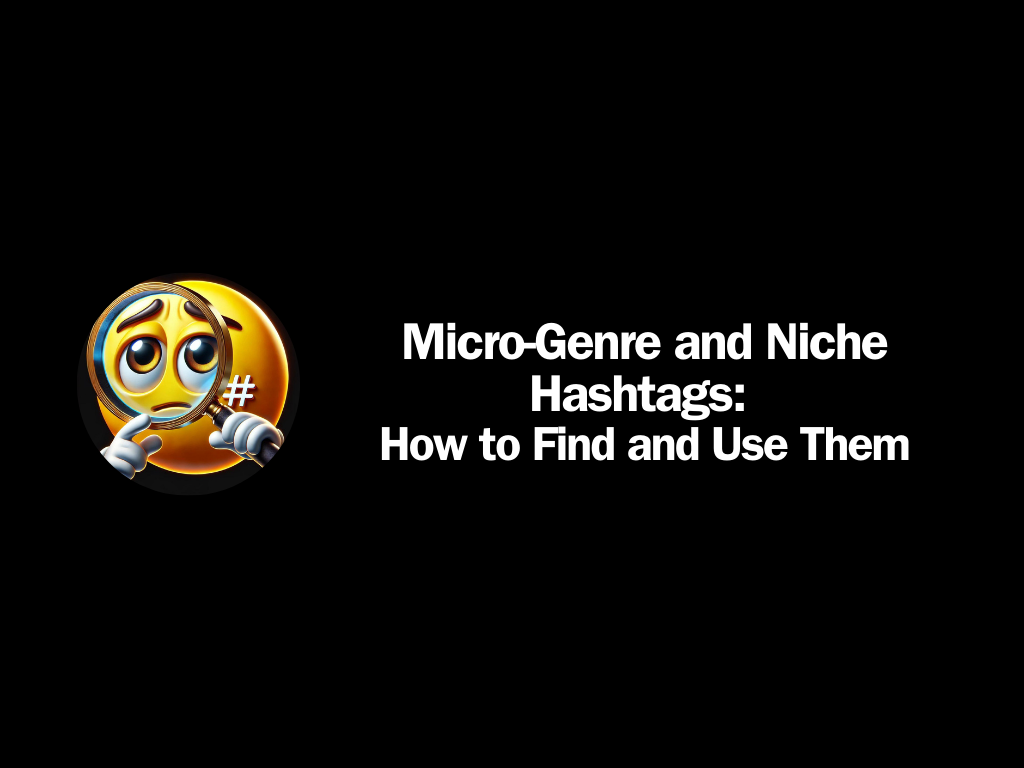
Micro-Genre and Niche Hashtags: How to Find and Use Them
Finding and using micro-genre and niche hashtags is pivotal for targeting the right audience.
These specific hashtags help you reach fans who are genuinely interested in your style of music.
Here's how you can find and effectively use them:
- Research Similar Artists: Look at the hashtags used by artists with a similar sound. For example, if you’re an indie pop artist, you might find hashtags like #IndiePop, #SynthWave, or #DreamPop being used by similar musicians.
- Use Hashtag Tools: Utilize tools like Musicstax and RiteTag to discover relevant and trending hashtags in your niche. These tools can provide insights into hashtag popularity and usage.
- Combine Hashtags: Mix popular, moderately popular, and niche-specific hashtags to increase your post's visibility. For instance, combining #NewMusicFriday with #BedroomPop and #DIYMusic can attract a diverse audience.
- Stay Updated: Trends change, so regularly update your hashtag strategy by monitoring which hashtags are gaining traction in your genre.
By focusing on these steps, you can ensure that your music reaches those who are most likely to appreciate and support it.
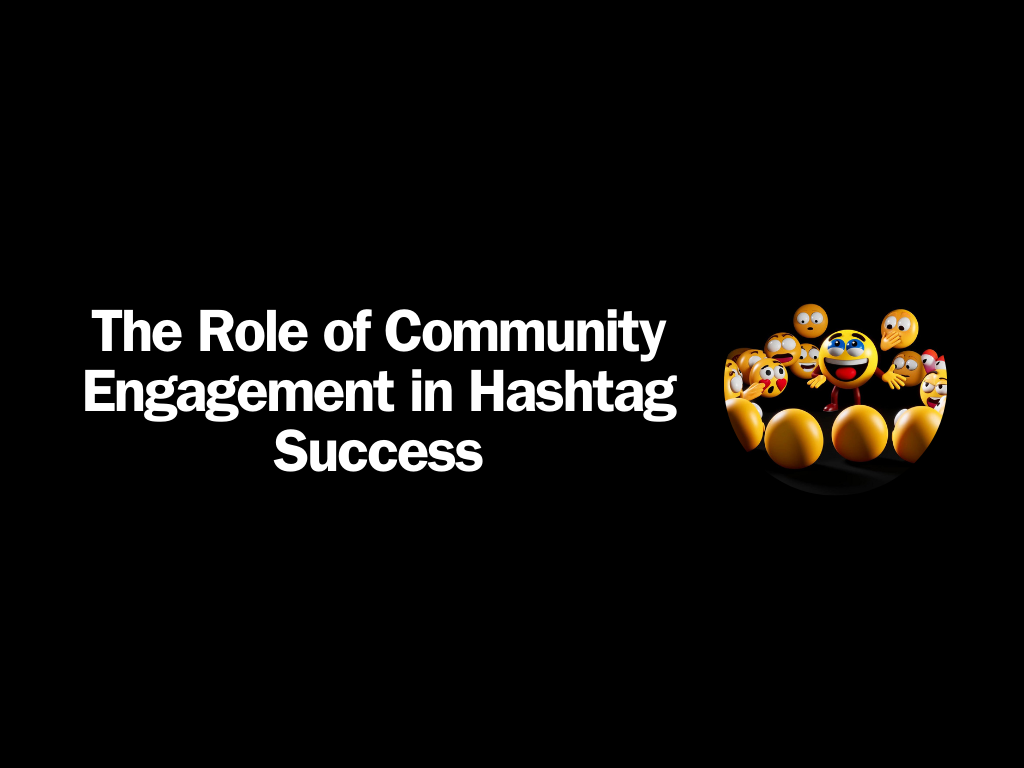
The Role of Community Engagement in Hashtag Success
Engaging with your community is as important as the hashtags you use.
Active participation in online communities can amplify your reach and foster stronger connections.
Here are some ways to leverage community engagement for hashtag success:
- Join Genre-Specific Groups: Participate in Facebook groups, subreddits, and other online communities dedicated to your genre. For example, join groups like “Indie Music Feedback” on Reddit.
- Comment and Share: Engage with posts from other artists and fans by liking, commenting, and sharing. This interaction boosts your visibility and shows that you’re an active member of the community.
- Host Q&A Sessions: Use Instagram Stories or live sessions to interact directly with your audience. Encourage them to use a specific hashtag to ask questions or share their thoughts, such as #AskYourBandName.
Community engagement not only helps in spreading your hashtags but also builds a loyal fan base that actively supports your music.
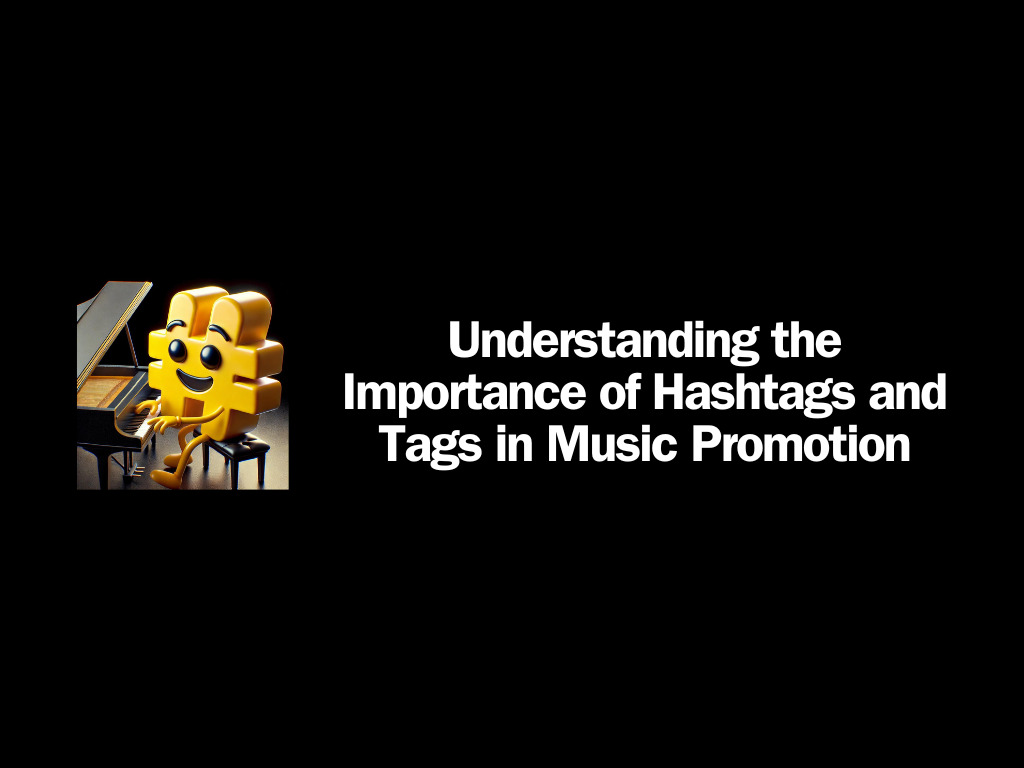
Understanding the Importance of Hashtags and Tags in Music Promotion
Hashtags and tags are more than just buzzwords; they are powerful tools for music promotion.
Understanding their importance can significantly impact your marketing strategy:
- Increased Discoverability: Hashtags categorize your content, making it easier for new listeners to find your music. For instance, using #IndieMusic can connect you with fans searching for new indie tracks.
- Algorithm Boost: Social media algorithms favor content that uses relevant hashtags, increasing your chances of being featured in explore feeds. When your post is initially shown to a small sample audience and receives high engagement, the algorithm will continue to share it with a larger audience.
- Branding and Identity: Consistent use of specific hashtags helps in building your brand identity and makes it easier for fans to associate certain tags with your music. For example, using a branded hashtag like #YourBandNameMusic can help consolidate your online presence.
By comprehending the role of hashtags and tags, you can harness their power to enhance your music promotion efforts.
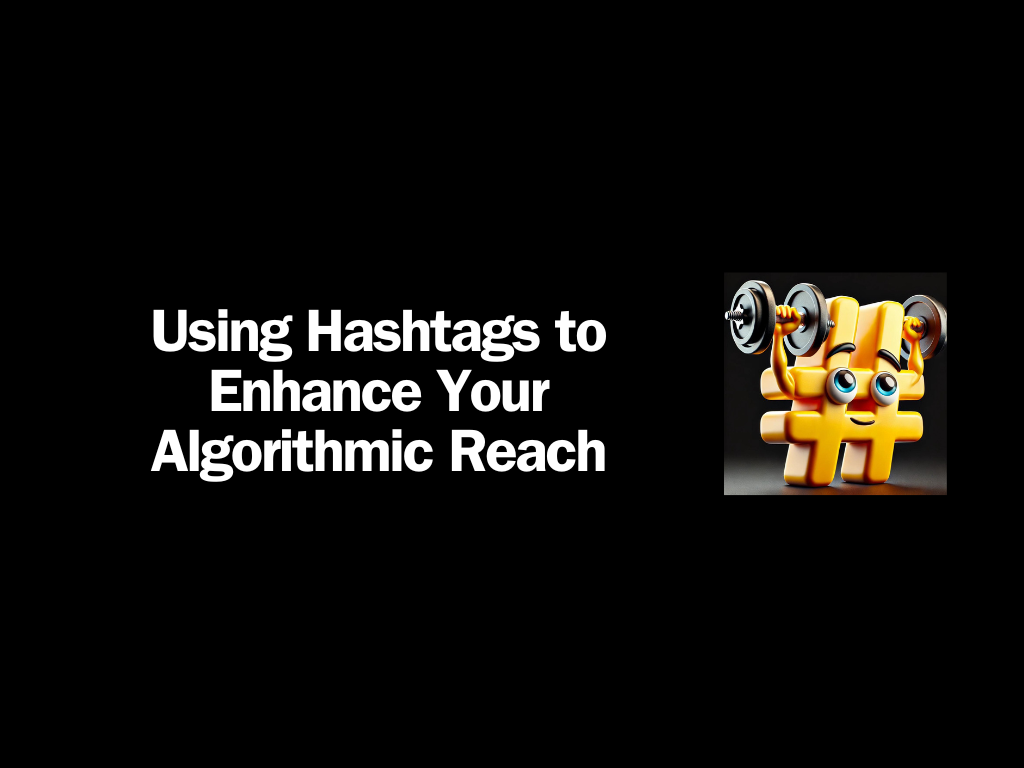
Using Hashtags to Enhance Your Algorithmic Reach
Algorithms on platforms like Instagram, TikTok, and Spotify play a significant role in content visibility.
Here’s how you can use hashtags to boost your algorithmic reach:
- Relevant Hashtags: Use hashtags that accurately describe your content to help algorithms recommend your music to the right audience. For example, if your song has a chill vibe, use #ChillVibes or #LoFiBeats.
- Engagement Metrics: Higher engagement on posts with specific hashtags signals to algorithms that your content is valuable, increasing its reach.
- Cross-Platform Strategy: Use hashtags consistently across different platforms to create a network of recommendations, enhancing your overall visibility. For example, use similar hashtags on Instagram, Twitter, and TikTok to create a cohesive presence.
By strategically using hashtags, you can teach algorithms to promote your music to a broader and more targeted audience.
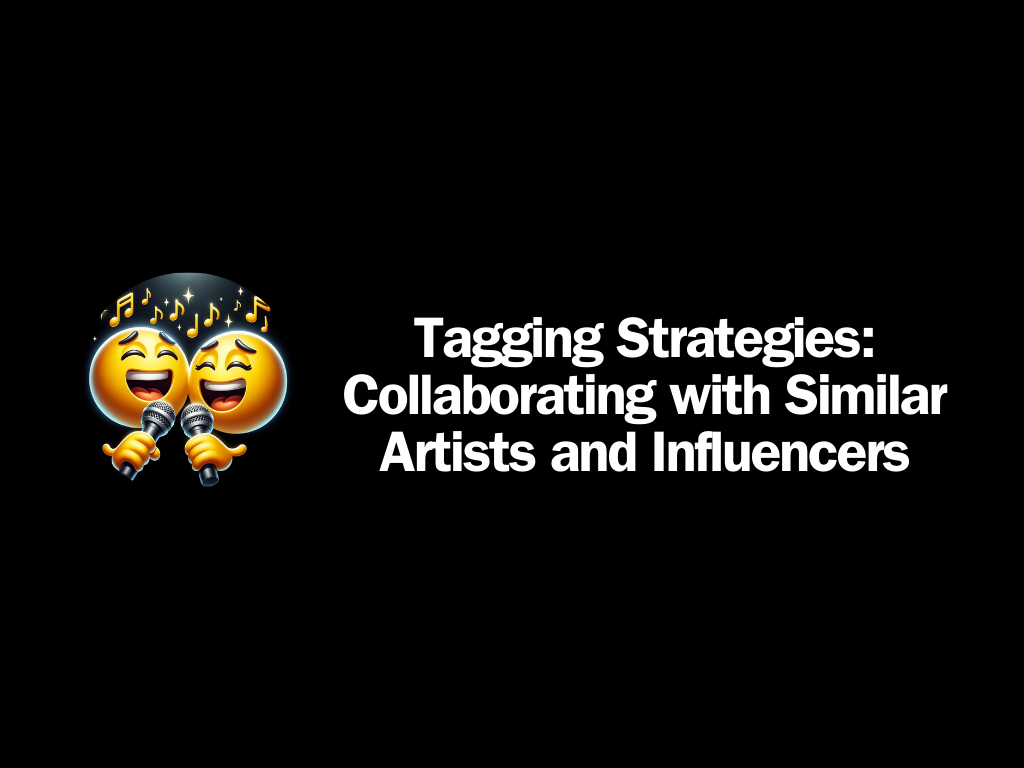
Tagging Strategies: Collaborating with Similar Artists and Influencers
Collaboration is key in the music industry, and tagging plays a crucial role in fostering these partnerships.
Here’s how you can effectively tag to collaborate:
- Tag Similar Artists: Identify and tag artists with a similar sound or style in your posts to build connections and increase cross-promotion opportunities. For example, if you’re collaborating with another artist, tag them and use a hashtag like #Collab.
- Engage with Influencers: Tag influencers and music bloggers who might be interested in your music to get featured in their content. For instance, tagging a popular music blogger in your niche can lead to a feature in their blog or social media.
- Feature Collaborations: When collaborating with other artists, use tags to highlight the partnership and reach each other’s fan bases. For example, use hashtags like #FeatureFriday or #ArtistCollaboration.
Tagging strategically can open doors to new opportunities and help you grow your audience through collaboration.
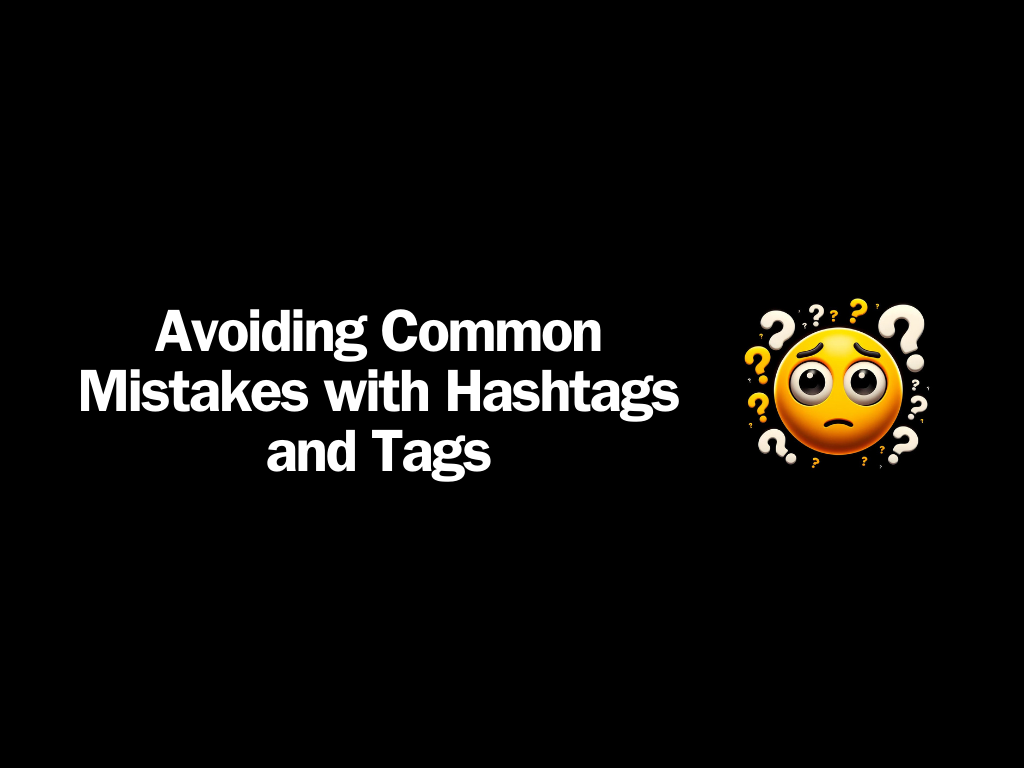
Avoiding Common Mistakes with Hashtags and Tags
While hashtags and tags are powerful tools, misusing them can hinder your progress.
Here are some common mistakes to avoid:
- Overuse of Hashtags: Using too many hashtags can look spammy. Aim for a balanced number that maintains professionalism. For example, instead of using the maximum of 30 hashtags, try using around 10-15 highly relevant ones.
- Irrelevant Hashtags: Avoid using popular but irrelevant hashtags as they can attract the wrong audience and reduce engagement. For instance, don’t use #FitnessGoals if your content is about music.
- Neglecting Analytics: Failing to monitor the performance of your hashtags can lead to ineffective strategies. Regularly review analytics to refine your approach. Tools like Instagram Insights can help you see which hashtags are driving the most engagement.
By steering clear of these mistakes, you can ensure that your hashtag and tagging strategy remains effective and professional.
Conclusion
Mastering the art of hashtags and tags is crucial for any musician looking to enhance their music promotion strategy.
By focusing on micro-genre and niche hashtags, engaging with the community, understanding the role of hashtags, enhancing algorithmic reach, collaborating through tagging, and avoiding common mistakes, you can significantly boost your visibility and connect with the right audience.
Consistent and strategic use of these tools will not only help you grow your fan base but also establish a strong presence in the music industry.
For more detailed strategies and tips, check out our eBook course "Content Strategies for Indie Artists: Monetize Your Music."
Dive deep into creating a comprehensive content plan that goes beyond hashtags and tags to include all aspects of music promotion. Download your copy today and take the next step in your music career!
FAQ about Hashtags & Tags
What are the differences between general, niche, and micro-genre hashtags, and how should I use them?
- General Hashtags: Broad tags like #Music, #Singer, or #LiveMusic. Use these to reach a wide audience but expect high competition.
- Niche Hashtags: More specific tags like #IndieMusic, #HipHopBeats, or #AcousticSessions. Use these to target a more specific group interested in your genre.
- Micro-Genre Hashtags: Highly specific tags like #BedroomPop, #DreamWave, or #LoFiBeats. Use these to connect with a very targeted audience who are highly likely to engage with your content.
How do I find the best hashtags for my specific music genre?
- Research Similar Artists: Look at the hashtags used by artists with a similar sound.
- Use Hashtag Tools: Tools like Musicstax and RiteTag can help you discover relevant and trending hashtags.
- Engage in Communities: Join genre-specific groups on platforms like Facebook and Reddit to see what hashtags are popular.
Can using popular hashtags hurt my visibility due to high competition?
Yes, using highly popular hashtags can cause your post to get lost in a sea of content. It's best to balance your strategy by using a mix of popular, moderately popular, and niche hashtags to maximize your visibility.
How many hashtags should I use in each post to maximize my reach?
Aim for 5-10 relevant hashtags. While platforms like Instagram allow up to 30, using too many can look spammy. Focus on quality and relevance to ensure better engagement and reach.
Can I use the same set of hashtags for every post, or should I change them up?
While it's okay to have some staple hashtags, it's best to mix it up and use different hashtags for each post. This helps you reach a wider audience and avoid being flagged as spam by algorithms.
Regularly update your hashtag strategy based on what’s trending and performing well.
“MusicPromoJunkie: Hitting The Right Notes With Your Music Promotion.”

